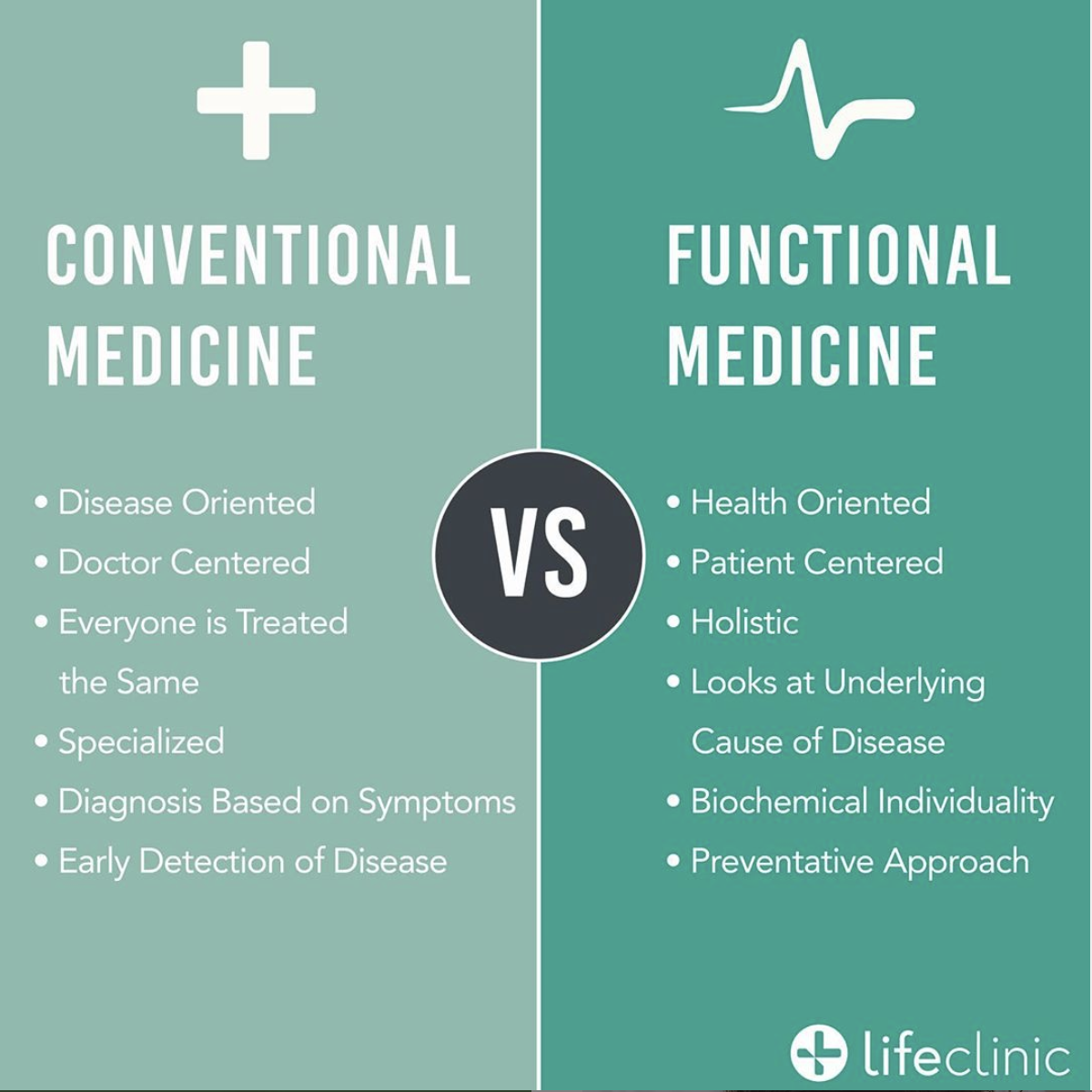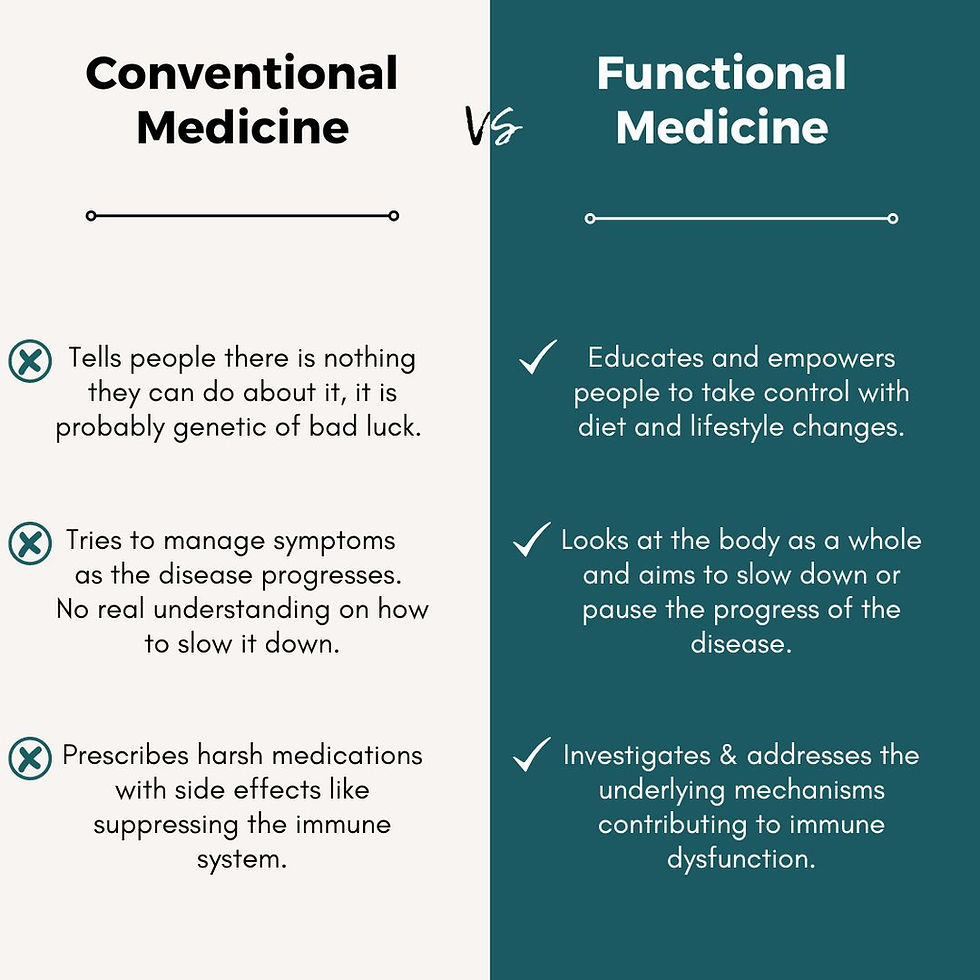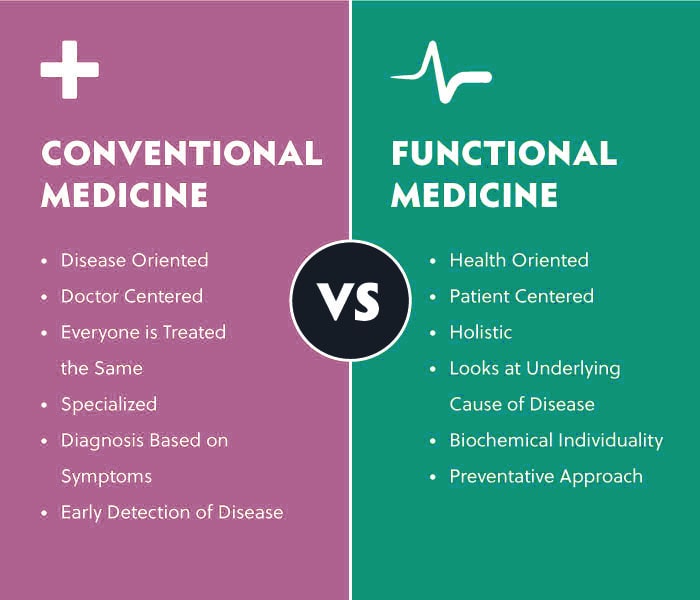Functional Medicine vs. Traditional Healthcare: A Comparative Analysis

Delving into the realm of Functional Medicine vs. traditional healthcare, this piece invites readers to explore the nuances of two distinct healthcare approaches. Brace yourself for an enlightening journey filled with insightful comparisons and contrasts.
In the following paragraphs, we will dissect the fundamental disparities between Functional Medicine and traditional healthcare, shedding light on their unique diagnostic methods, treatment approaches, and patient care models.
Definition of Functional Medicine and Traditional Healthcare

Functional Medicine:Functional medicine is a patient-centered approach to healthcare that focuses on addressing the root cause of illness rather than just treating symptoms. It aims to promote optimal health and vitality by treating the whole person, considering factors such as genetics, environment, and lifestyle.Traditional Healthcare:Traditional healthcare, on the other hand, follows a more disease-centered model that typically involves diagnosing and treating specific illnesses or conditions.
It often relies on pharmaceutical interventions and standard treatment protocols based on symptoms rather than underlying causes.
Key Differences
- Approach: Functional medicine takes a holistic approach by looking at the interconnectedness of the body systems, while traditional healthcare tends to focus on individual symptoms and organs.
- Treatment: Functional medicine emphasizes lifestyle changes, nutrition, and personalized treatment plans, whereas traditional healthcare often relies on medications and procedures to manage symptoms.
- Focus: Functional medicine focuses on prevention and addressing the root cause of illness, while traditional healthcare is more reactive, treating symptoms as they arise.
- Collaboration: Functional medicine practitioners often work closely with patients to empower them in their own healthcare journey, while traditional healthcare can sometimes be more paternalistic in nature.
Approach to Diagnosis and Treatment
Functional medicine takes a personalized approach to diagnosing and treating illnesses by looking at the root causes of health issues rather than just addressing symptoms. Practitioners in functional medicine spend time with patients to understand their medical history, lifestyle, and genetic makeup to create individualized treatment plans.
Functional Medicine Diagnosis and Treatment
In functional medicine, diagnosis involves comprehensive testing to analyze a patient's overall health, including blood work, genetic testing, and assessments of lifestyle factors. Treatment focuses on addressing underlying imbalances through nutrition, supplements, exercise, stress management, and other holistic approaches.
Traditional Healthcare Diagnosis and Treatment
Traditional healthcare typically follows a standardized approach to diagnosis and treatment, often focusing on symptom management through medications or surgeries. Diagnosis in traditional healthcare relies heavily on medical history, physical exams, and diagnostic tests like X-rays, MRIs, and blood tests.
Treatment usually involves prescribed medications or procedures based on established medical guidelines.
Comparison of Approaches
Functional medicine's personalized approach allows for a deeper understanding of the individual's health needs and aims to promote overall wellness rather than just treating specific symptoms. In contrast, traditional healthcare often provides quick fixes for symptoms without always addressing the underlying causes of illness.
While traditional healthcare is essential for acute and emergency care, functional medicine offers a more comprehensive and holistic approach for chronic conditions and preventive care.
Patient-Centered Care vs. Disease-Centered Care

Functional medicine and traditional healthcare differ significantly in their approach to patient care. Functional medicine prioritizes patient-centered care, focusing on treating the individual as a whole rather than just addressing symptoms or diseases. On the other hand, traditional healthcare tends to follow a disease-centered care model, where the primary focus is on diagnosing and treating specific illnesses.
Patient-Centered Care in Functional Medicine
Functional medicine places a strong emphasis on building a partnership between the healthcare provider and the patient. This approach involves actively listening to the patient's concerns, understanding their unique health goals, and involving them in the decision-making process regarding their treatment plan.
By considering the patient's lifestyle, environment, and genetic factors, functional medicine aims to create personalized treatment plans that address the root cause of health issues.
- Patients are encouraged to take an active role in their healthcare journey.
- Treatment plans are tailored to meet the individual needs and preferences of each patient.
- Emphasis is placed on preventive care and lifestyle modifications to promote long-term health and well-being.
Disease-Centered Care in Traditional Healthcare
In traditional healthcare, the focus is primarily on diagnosing and treating specific diseases or conditions. Patients often have limited involvement in decision-making processes, and treatment plans may be standardized based on established protocols rather than individual needs. The healthcare provider typically addresses symptoms without delving deeper into the underlying causes of health issues.
- Treatment plans are often symptom-focused rather than addressing the root cause of health issues.
- Patients may have limited input in their treatment decisions, leading to a more passive role in their healthcare.
- Standardized protocols and guidelines may dictate the course of treatment, potentially overlooking individual variations and needs.
Holistic vs. Specialized Care

When it comes to healthcare, the approach to treatment can vary significantly between functional medicine and traditional healthcare. Functional medicine takes a holistic approach, focusing on treating the root cause of illness and promoting overall wellness. On the other hand, traditional healthcare often provides specialized care, where symptoms are treated individually without always addressing the underlying issues.
Holistic Approach of Functional Medicine
Functional medicine practitioners view the body as a whole system, considering how all aspects of a patient's life – including genetics, environment, and lifestyle – interact to influence health. By looking at the interconnectedness of these factors, functional medicine aims to identify and address the underlying causes of disease rather than just treating symptoms.
This approach often involves personalized treatment plans that may include changes in diet, exercise, stress management, and supplements to support the body's natural healing processes.
Specialized Care in Traditional Healthcare
Traditional healthcare professionals typically specialize in specific areas of medicine, such as cardiology, oncology, or neurology. This specialization allows them to develop expertise in diagnosing and treating particular conditions, often using evidence-based guidelines and established protocols. While traditional healthcare excels in providing acute care and managing complex medical conditions, it may sometimes focus more on symptom management rather than addressing the root cause of health issues.
Benefits and Limitations of Each Approach
- Functional Medicine:
- Benefits:
- Focuses on prevention and overall wellness
- Personalized treatment plans tailored to individual needs
- Emphasizes patient empowerment and education
- Limitations:
- May not always be covered by insurance
- Requires active patient participation and lifestyle changes
- Effectiveness may vary depending on the practitioner's expertise
- Benefits:
- Traditional Healthcare:
- Benefits:
- Specialized expertise in treating specific medical conditions
- Access to advanced diagnostic tools and technologies
- Immediate access to emergency and acute care services
- Limitations:
- Focuses more on symptom management than root cause treatment
- May involve over-reliance on prescription medications
- Limited time for patient interactions and holistic care
- Benefits:
Conclusion
In conclusion, the juxtaposition of Functional Medicine and traditional healthcare unveils a compelling narrative of personalized vs. standardized care, root cause vs. symptom management, and patient vs. disease-centered focus. As the healthcare landscape continues to evolve, understanding these differences becomes paramount in making informed decisions about one's well-being.
Clarifying Questions
What does Functional Medicine entail?
Functional Medicine focuses on addressing the root causes of health issues rather than just managing symptoms, taking a more holistic and personalized approach to patient care.
How does traditional healthcare differ in its approach to patient care?
Traditional healthcare often emphasizes managing symptoms rather than delving into the underlying causes of health problems, following a more standardized and disease-centered care model.
What are the key differences in diagnosis and treatment methods between Functional Medicine and traditional healthcare?
Functional Medicine utilizes personalized diagnostic and treatment approaches, while traditional healthcare typically relies on standardized methods for diagnosis and treatment.
How does patient involvement vary between Functional Medicine and traditional healthcare?
Functional Medicine prioritizes patient-centered care, involving patients in decision-making processes, whereas traditional healthcare often follows a disease-centered approach with less patient involvement in treatment decisions.
What are the benefits and limitations of the holistic approach in Functional Medicine compared to the specialized care in traditional healthcare?
Functional Medicine's holistic approach focuses on overall well-being and root cause resolution, while traditional healthcare's specialized care offers expertise in specific medical fields but may overlook underlying health issues.




